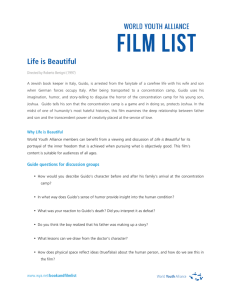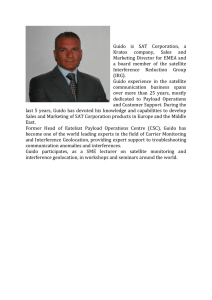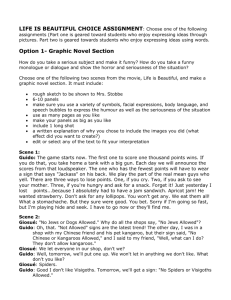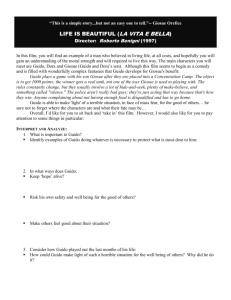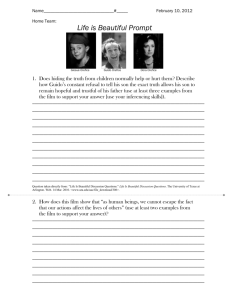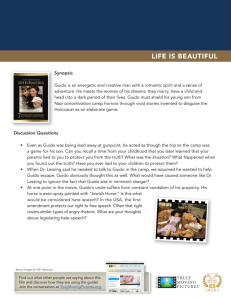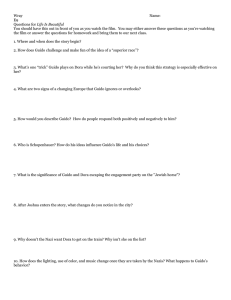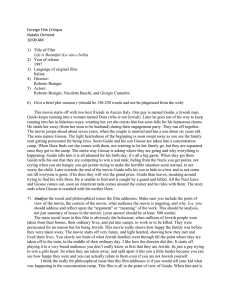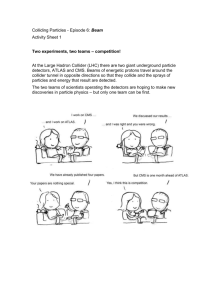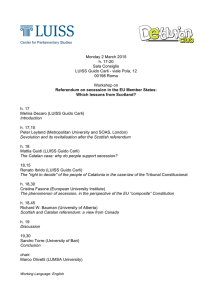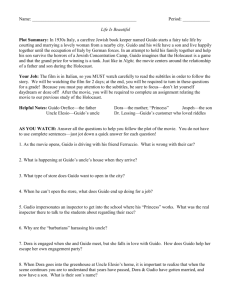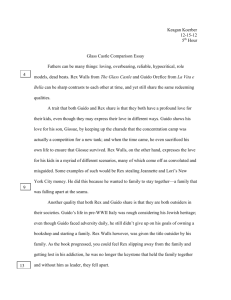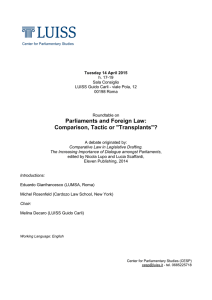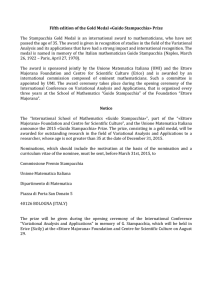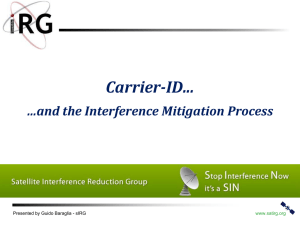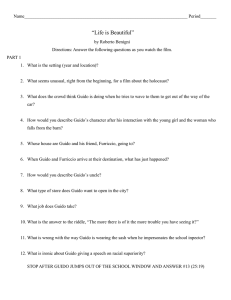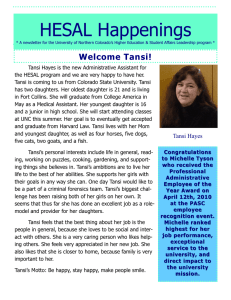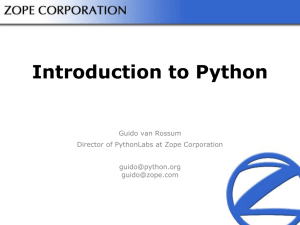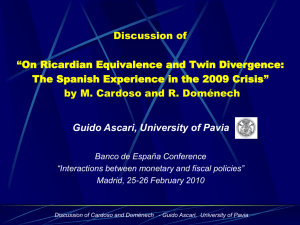LIFE IS BEAUTIFUL DISCUSSION QUESTIONS FOR
advertisement
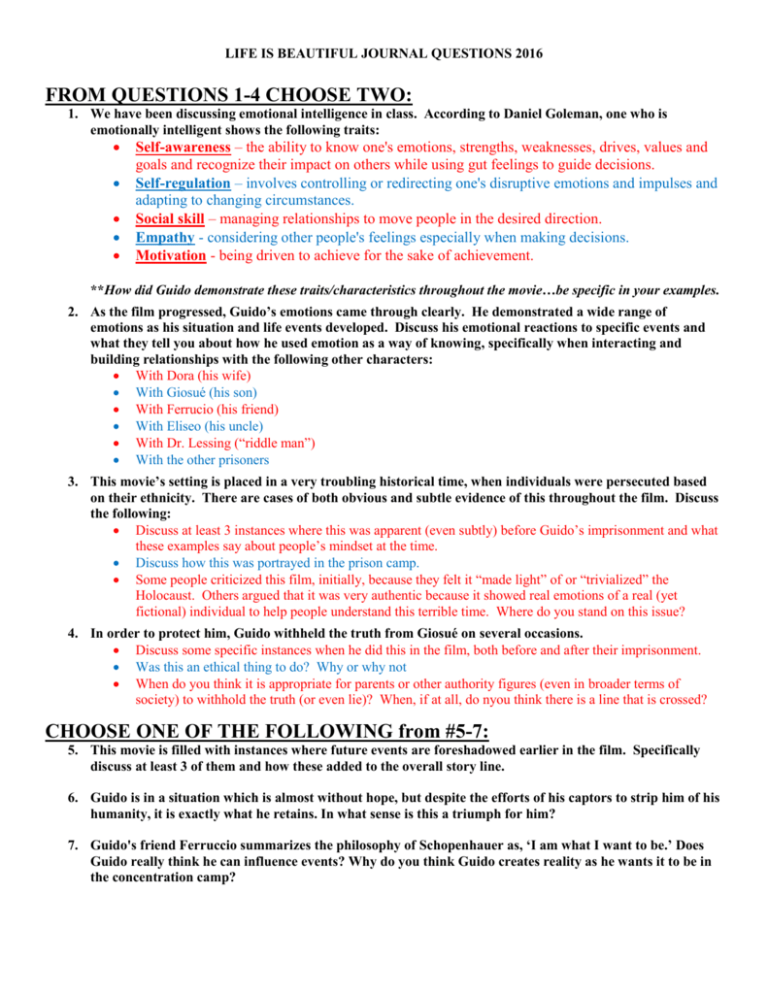
LIFE IS BEAUTIFUL JOURNAL QUESTIONS 2016 FROM QUESTIONS 1-4 CHOOSE TWO: 1. We have been discussing emotional intelligence in class. According to Daniel Goleman, one who is emotionally intelligent shows the following traits: Self-awareness – the ability to know one's emotions, strengths, weaknesses, drives, values and goals and recognize their impact on others while using gut feelings to guide decisions. Self-regulation – involves controlling or redirecting one's disruptive emotions and impulses and adapting to changing circumstances. Social skill – managing relationships to move people in the desired direction. Empathy - considering other people's feelings especially when making decisions. Motivation - being driven to achieve for the sake of achievement. **How did Guido demonstrate these traits/characteristics throughout the movie…be specific in your examples. 2. As the film progressed, Guido’s emotions came through clearly. He demonstrated a wide range of emotions as his situation and life events developed. Discuss his emotional reactions to specific events and what they tell you about how he used emotion as a way of knowing, specifically when interacting and building relationships with the following other characters: With Dora (his wife) With Giosué (his son) With Ferrucio (his friend) With Eliseo (his uncle) With Dr. Lessing (“riddle man”) With the other prisoners 3. This movie’s setting is placed in a very troubling historical time, when individuals were persecuted based on their ethnicity. There are cases of both obvious and subtle evidence of this throughout the film. Discuss the following: Discuss at least 3 instances where this was apparent (even subtly) before Guido’s imprisonment and what these examples say about people’s mindset at the time. Discuss how this was portrayed in the prison camp. Some people criticized this film, initially, because they felt it “made light” of or “trivialized” the Holocaust. Others argued that it was very authentic because it showed real emotions of a real (yet fictional) individual to help people understand this terrible time. Where do you stand on this issue? 4. In order to protect him, Guido withheld the truth from Giosué on several occasions. Discuss some specific instances when he did this in the film, both before and after their imprisonment. Was this an ethical thing to do? Why or why not When do you think it is appropriate for parents or other authority figures (even in broader terms of society) to withhold the truth (or even lie)? When, if at all, do nyou think there is a line that is crossed? CHOOSE ONE OF THE FOLLOWING from #5-7: 5. This movie is filled with instances where future events are foreshadowed earlier in the film. Specifically discuss at least 3 of them and how these added to the overall story line. 6. Guido is in a situation which is almost without hope, but despite the efforts of his captors to strip him of his humanity, it is exactly what he retains. In what sense is this a triumph for him? 7. Guido's friend Ferruccio summarizes the philosophy of Schopenhauer as, ‘I am what I want to be.’ Does Guido really think he can influence events? Why do you think Guido creates reality as he wants it to be in the concentration camp?
